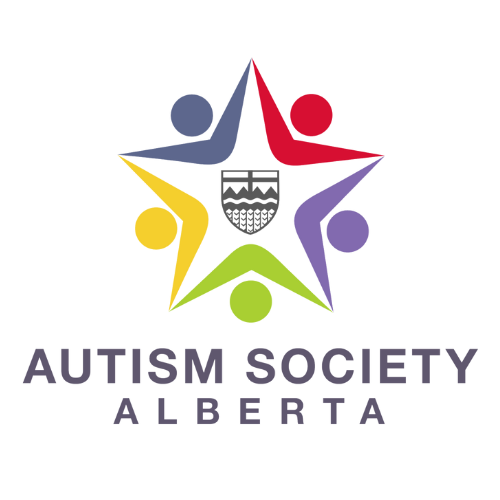Autism Around Alberta – March 2015 Edition
Moving Into Adulthood with Autism
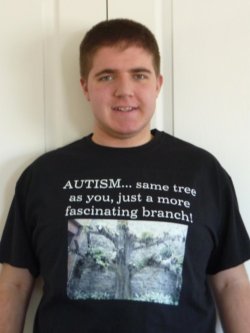 Thursday, April 2nd, 2015 marks the 8th annual World Autism Awareness Day. Around the world, autism organizations, parents, and individuals with autism will be recognizing the day with all kinds of events, from telling their stories, to fundraising, to showing support. As he turned 18 in November, this year will be our son Eric’s first World Autism Awareness day as an adult. So I thought I would share with you some of our family’s experiences in transitioning Eric from a child with autism to an adult with autism.
Thursday, April 2nd, 2015 marks the 8th annual World Autism Awareness Day. Around the world, autism organizations, parents, and individuals with autism will be recognizing the day with all kinds of events, from telling their stories, to fundraising, to showing support. As he turned 18 in November, this year will be our son Eric’s first World Autism Awareness day as an adult. So I thought I would share with you some of our family’s experiences in transitioning Eric from a child with autism to an adult with autism.
Knowing that Eric is within the severe range of the autism scale led us in a certain direction. The process is very individualized, depending on each person’s capabilities and skills. The first step for us was having an up-to-date psychological assessment done on Eric to document his capabilities, challenges, and his I.Q. This step was very important when it came to finding out what funding and supports our son qualified for.
Next we applied for PDD (Persons with Developmental Disabilities). In Alberta, this funding model gives dollars for services provided to the individual, either through a community agency, or through family managed services. To qualify, you must have significant limitation in intellectual capacity and in adaptive skills (basic living skills). You must have had both of these limitations before you turn 18. My advice: start this process when your child is 16 years old.
(more…)
Autism Around Alberta – February 2015 Edition
Physical Problems in People with Autism Spectrum Disorder
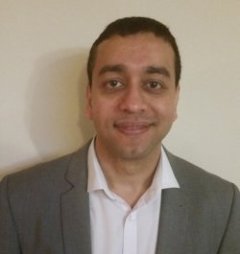 A systematic medical history and physical examination are essential for all patients with ASD. Rates of medical illness are estimated at 10–20%. A number of medical conditions are associated with ASD, including neurological, gastrointestinal, nutritional and sleep disorders. Clinicians should be aware that some individuals with ASD are insensitive to cold and pain, which may lead to a reduction in symptom reporting, while deficits in communication can make diagnosis by clinical interview difficult.
A systematic medical history and physical examination are essential for all patients with ASD. Rates of medical illness are estimated at 10–20%. A number of medical conditions are associated with ASD, including neurological, gastrointestinal, nutritional and sleep disorders. Clinicians should be aware that some individuals with ASD are insensitive to cold and pain, which may lead to a reduction in symptom reporting, while deficits in communication can make diagnosis by clinical interview difficult.
Epilepsy
Epilepsy is the most common neurological condition associated with ASD, and contributes to increased morbidity and mortality. The prevalence of epilepsy in children with autism has been reported to range from 5% to 38%. This childhood epilepsy is particularly persistent into adulthood, with remission in only 16% of cases. The presence of comorbid intellectual disability significantly increases the risk of epilepsy. Magnetic resonance imaging (MRI) and electroencephalography (EEG) remain useful in the assessment of significant neurological comorbidity in the presence of focal neurological signs or seizures.
Autism Around Alberta – January 2015 Edition
Parents Start Swimming Program in Red Deer
Those of us who are in Red Deer are lucky to have an amazing recreation facility, The G.H. Dawe Community Centre, that is working very hard to offer recreational programming for children with unique needs.
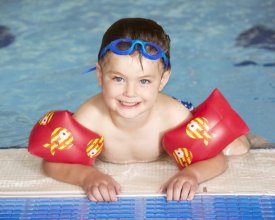
We contacted an aquatic program specialist, and they were more than happy to work in team with us to come up with a swimming lesson opportunity for our children. We decided that the easiest and most cost-effective way for our children to experience success in swimming lessons would be to create our own class. Essentially we created a private class and filled the lesson with our children. We have four children in the class, and I think it is important to note that our class is comprised of not only children with exceptional needs, but also typical children (siblings). The Dawe Community Center slotted two of their top lifeguard instructors, a pool manager and an instructor completing a degree in adapted physical education – how lucky were we!
